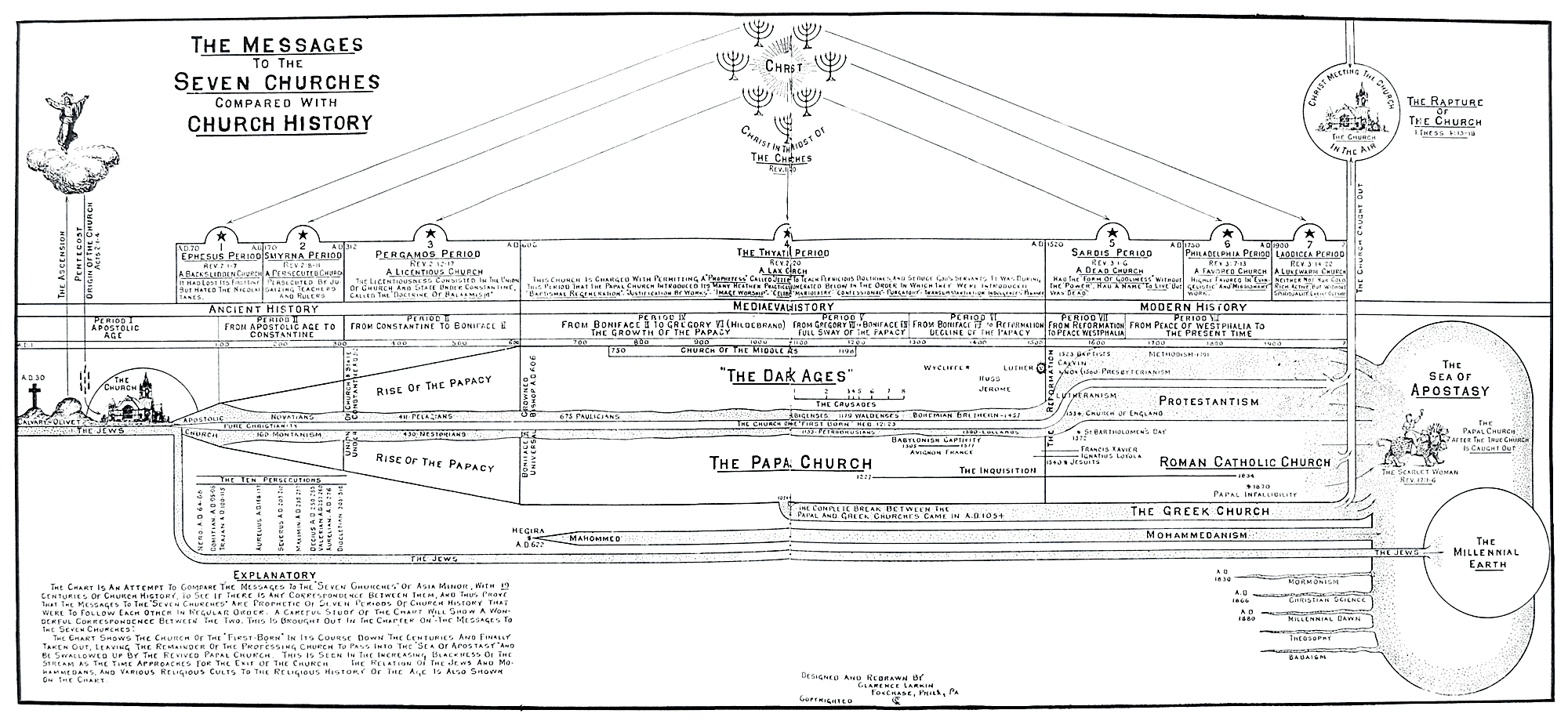I was mistaken in another thread. I thought that William Branham, a Penetcostal, was the one who moved the Seven Literal Church idea into a Seven Church Age idea. He did write a book called, An Exposition of the Seven Church Ages.
These ages were outlined in his book An Exposition of the Seven Church Ages:[72]Ephesus (AD 53–170), Smyrna (170–312), Pergamos (312–606), Thyatira (606–1520), Sardis (1520–1750), Philadelphia (1750–1906), and finally Laodicea (1906–the rapture).
HOWEVER, as Ransom mentioned that he thought it was Clarence Larkin (which I initially thought), but neither of us could find his chart. WELL... Here it is!
1918

Dallas Theological Seminary bought into this idea. 's journal, by Henry Thiessen. He reflects this view in his article: "Will the Church Pass Through the Tribulation?" BSac Vol 92 #366—Apr 1935
By 1967, Robert Thomas published a journal article in Dallas Theological Seminary's BSac which debunked this view.
Thomas identified that this interpretation goes back as far as 1202.
Franciscan Abbot Joachin of Floris (died A.D. 1202)
Puritan Thomas Brightman (died 1607)
Joseph Mede (died 1638)
Cocceius (died 1669).
These ages were outlined in his book An Exposition of the Seven Church Ages:[72]Ephesus (AD 53–170), Smyrna (170–312), Pergamos (312–606), Thyatira (606–1520), Sardis (1520–1750), Philadelphia (1750–1906), and finally Laodicea (1906–the rapture).
HOWEVER, as Ransom mentioned that he thought it was Clarence Larkin (which I initially thought), but neither of us could find his chart. WELL... Here it is!
1918

Dallas Theological Seminary bought into this idea. 's journal, by Henry Thiessen. He reflects this view in his article: "Will the Church Pass Through the Tribulation?" BSac Vol 92 #366—Apr 1935
By 1967, Robert Thomas published a journal article in Dallas Theological Seminary's BSac which debunked this view.
Thomas identified that this interpretation goes back as far as 1202.
Franciscan Abbot Joachin of Floris (died A.D. 1202)
Puritan Thomas Brightman (died 1607)
Joseph Mede (died 1638)
Cocceius (died 1669).
